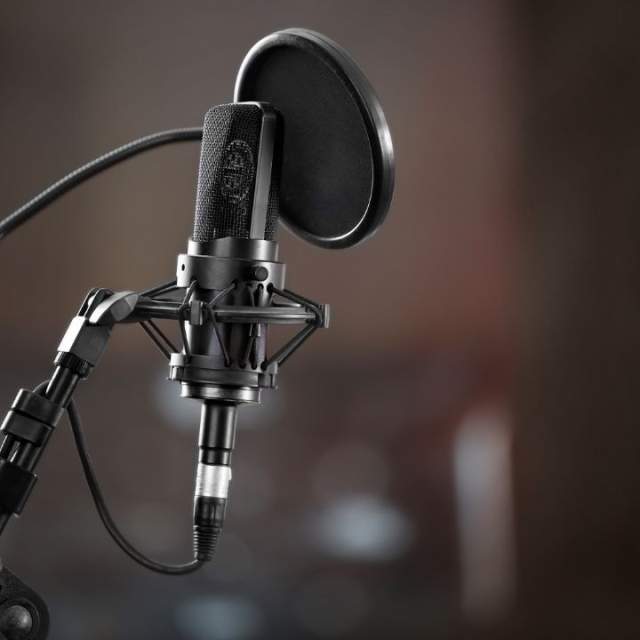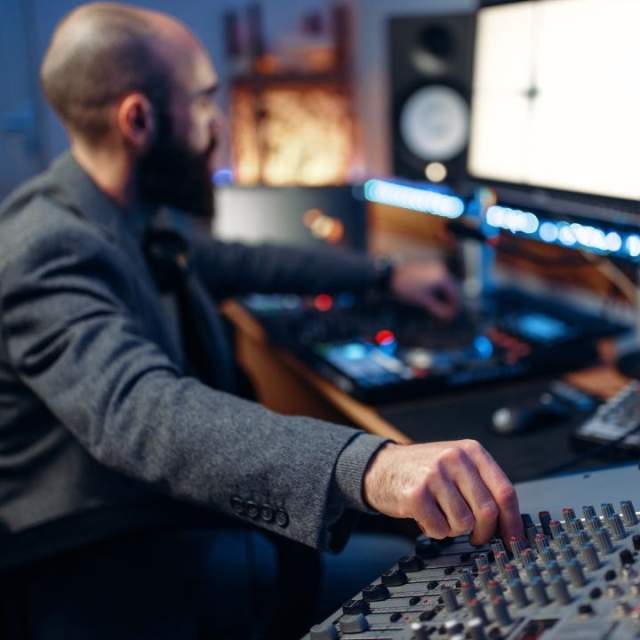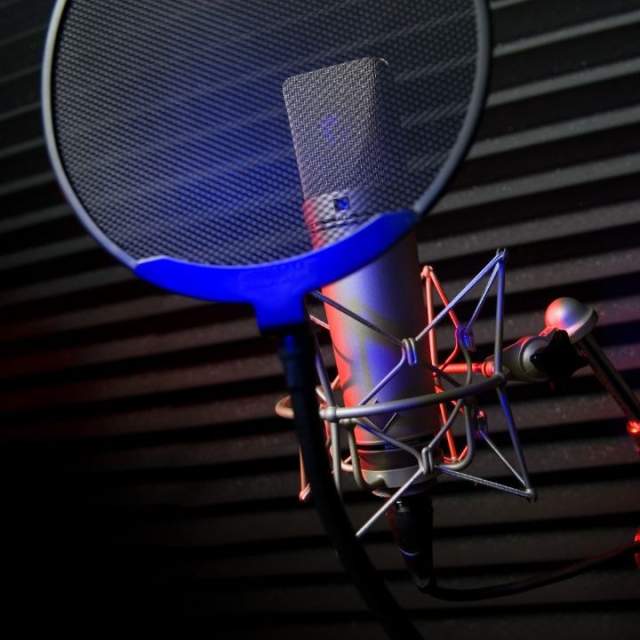The role of voice accents in voice over | Subtle but significant

Voice accents play a subtle but significant role in voice acting. Do you enjoy watching movies? Then you must have seen famous actors portraying different roles, effortlessly changing different accents to suit different roles.
The British Tom Holland for example. He used an American accent for his role in the Spider-Man movies. Heard of Meryl Streep? She’s known for having eight accents, including Polish, Danish and the British accent. She even does an astounding Cockney accent.
In the world of voice acting, accents and dialects are even more important. Why? Because for a voice actor, their voice becomes the sole conveyor of their character’s identity. That’s why many professional voice talents fine tune their accents and dialects. Something which makes sense, if you consider their voices as their main instrument. Mastering different accents increases your opportunities in the world of professional voice-overs.
But what exactly is the power of accents and dialects in voice-overs? In this article you will discover the ins and outs. Let’s begin!

This article in 30 seconds
-
Accents and dialects are crucial for representing a character properly. This is the case for all types of voice-overs, not just in the entertainment industry.
-
An accent or dialect must be relatable to your audience. Choosing the right one can be a powerful tool for conveying messages to them.
-
What is the difference between an accent and a dialect?
-
A dialect has its own unique vocabulary. It usually represents a certain region or group op people.
-
An accent portrays a character’s social class, or where they come from. It’s usually the main language, but spoken with different intonation patterns.
-
-
Accents will engage your listeners and captivate their attention. By staying consistent with your brand’s image, you will create trust. And trust is vital in branding a company.
-
There are certain dangers and challenges within picking dialects and accents in voice-overs.
-
It might not connect to international audiences.
-
There’s a danger of stereotyping.
-
Finding the right accent might be tough.
-
-
However, there are possible solutions to minimize the chances of these challenges. Add, for example, subtitles to your video or e-learning. This way, people who do not connect to the accent, can still connect by reading the subtitles.
-
VoiceProductions offers a wide range of voice talents, from all around the world.
-
AI can also make voice-overs with certain dialects and different accents. Artificial Intelligence is growing and adapting, but cannot keep up with the quality of accents offered by humans. They can’t capture nuances and emotional subtleties like humans can.
-
Choosing the right accent or dialect in your voice-over is crucial for your brand’s image. For instance, commercials for pizza-brands. American pizza-brands will use American (or specifically Southern) accents, while Italian-speaking voice actors often represent Italian pizzas.
-
At VoiceProductions you will ensure you find the right voice talent for your next voice acting project. Are you not sure what accent or voice suits your project best? We’d be happy to help you. E-mail us your question, or fill in our contact form.

Understanding the role of accents and dialects
To truly represent a character, accents and dialects are crucial. This is not only true for television or entertainment purposes. It’s also the case for corporate videos, commercials or e-learnings. An accent or dialect must be relatable to your audience. If it’s just not right or missing that little something, people will stop listening.
Using accents and dialects can be a powerful tool for conveying messages to your target audience. It effectively creates a cultural connection. Accents help to portray emotions into words, while dialects show heritage and identity. Both add depth to your voice narration or voice-over.
What is the difference between a dialect and an accent?
While different accents involve different pronunciations of the same language, dialects, which include unique vocabulary and grammar, are more complex to master. When speaking in a certain dialect, the voice actor has to learn the unique vocabulary, including grammar, of a certain region or group of people.
An accent does not usually require different grammar but can still be challenging to control. It can portray a character’s social class, or where they live. For instance, within the United Kingdom alone, there are up to 40 distinct accents. If you think that’s a lot, then don't even try to imagine how many accents America has.
Mastering an accent, or dialect, is challenging. Voice actors must consistently practice and dedicate themselves to mastering these speech forms. Learning a new accent involves more than changing speech patterns. A voice actor has to embrace and understand a new culture, with its own way of expressing themselves. Accents have a history, and carry different emotional depths. Good voice actors do not just learn the sound of an accent or dialect. They master its soul.
The power of accents
Accents can be used to engage listeners and captivate their attention. Regional accents are particularly effective in doing so. For some, these accents can evoke a sense of pride. This familiarity creates a connection, or even a sense of belonging. It is a powerful tool when it comes to marketing projects, or storytelling. It leaves an impression that stays with the audience. Thus making the experience more genuine, and trustworthy.
Not only for people that recognize their own accent, but also for people that have certain expectations with certain accents or dialects. Take, for example, a commercial regarding barbecue sauce. What accent do you expect with this commercial? Would you expect a formal British accent, or … an American voice, with a southern drawl?

Boosting brand trust with dialects or accents in your voice-over
Building trust is crucial for your brand and vital to your company's image. Using a voice talent skilled in regional accents demonstrates your company's commitment to local communities. Maintaining consistency with your brand’s image also builds trust.
We all know that trust is vital in branding. It leads to long-term success and makes your audience loyal to you and your products or services.
The challenges and chances of dialects and accents in voice-overs
It’s of course crucial to carefully select your brand’s dialect or accent. Do you work with the local community? In that case, a local accent or dialect might be wise. But do you work internationally? A British listener might not connect with a Southern American accent, and prefer a British accent.
Not to mention the dangers of stereotyping. Regions or cultures can be easily misrepresented when using the wrong accent. Some listeners might even find this offensive. This can lead to backlash, such as negative reviews or critical articles online. That’s why it’s always important to do your research before choosing the right dialect and accent for your company’s brand image.
It can be challenging to find a voice actor with the appropriate accent. Let’s say you need a Belgian voice-over. In Belgium, they speak three languages, including a version of Dutch that’s not necessarily relatable to Dutch people. Similarly, the standard Dutch is not necessarily relatable to Belgians. But, they do understand each other. Which audience do you want to connect with, and how will you achieve this? And then we haven't even started on the French accent that's spoken in Belgium.
Adding subtitles or transcripts with your product can be helpful. This is especially useful in corporate videos or e-learning modules. You want the listeners to know exactly what’s being said because the information given is of high importance. Listeners that are not familiar with the specific accent or dialect, might still connect to the text, if they can read what’s being said.
Hiring a professional voice actor is also of the utmost importance. A professional voice actor specializing in a specific accent or dialect ensures authenticity in your company's voice-over projects.
The difference between specific voice accents
VoiceProductions offers a wide range of voice actors. Each voice talenthas their own specialties. Are you looking for an English-speaking actor? You can choose from:
-
English (American)
-
English (Australian)
-
English (British)
-
English (Canadian)
-
English (International)
-
English (Ireland)
-
English (Scotland)
What’s the difference between English (American) and English (International)? Our International English category includes speakers with specific accents. For example, our voice actors from Denmark or Nigeria, speaking English in their own distinguishable way. Conversely, our American voice-talents use distinct American dialects. Makes sense, right? We thought so.
VoiceProductions’ database of voices does not only include English-speaking voice actors. Additionally, we offer voice actors in other dialects, including German. Are you looking for a German-speaking actor? Then it’s important to choose from our German, German (Swiss) or German (Austria) voice actors. The same goes for Spanish dialects, and even French. For instance, do you need a French (Canadian) voice or a traditional French accent? The outcome differs, and it might affect your audience in an entirely different way.

AI and accents in voice-overs
Even though artificial intelligence is making significant advancements in the world of voice-overs, it still struggles to master dialects and various accents. AI is trying, but has not reached the level of authenticity and accuracy that human voices have.
Human voices are generally better because humans capture the nuances and emotional subtleties of speech that AI often misses. Humans intuitively understand regional variations, slang, and intonation. The biggest pitfall of AI with accents, is its inability to fully grasp these nuances.
Yes, AI can mimic accents to some extent. And it’s developing at a rapid speed, no one can deny that. But AI voices often lack the depth and flexibility that’s needed to adjust to context or emotional cues. Because of this, AI accents and dialects can sound forced or unnatural. Furthermore, AI struggles to accurately distinguish between similar-sounding accents. This leads to inconsistencies in pronunciation.
Professional voice actors, however, specialize in their accents and dialects. Are you looking for a local voice talent? You can find them at VoiceProductions.
Amazon Polly’s accent recognition
Are you familiar with Amazon Polly’s accent recognition and pronunciation accuracy? First, it's important to understand what Amazon Polly is. It’s a cloud service from Amazon that turns text into lifelike speech. Services like this are called text-to-speech, or TTS for short.
Amazon Polly has a broad selection of voices and languages, yet still manages to not quite grasp the subtleties of authentic accent reproduction. Amazon Polly supports even the more advanced features, like Neural Text-to-Speech (NTTS). This is a feature for more natural sounding speech. However, it still does not make up for the lack of human touch in speech nuances.

Successful accents in voice-over projects
Have you ever eaten pizza? Most likely, yes. Whether or not you enjoy melted cheese on crispy dough, you're probably aware of the differences between American and Italian pizzas. Take Dr. Oetker for example. The world famous brand makes all kinds of products, including pizza. They have both American pizzas, and Italian. But in their marketing strategy they use completely different voice-overs.
American pizzas need an American voice-over (sometimes even a Southern accent). In the mean time, Italian products often need an English-speaking voice with an Italian accent. Or perhaps they go for an Italian voice, with English subtitles.
Regardless of the approach, consistency with the brand’s image is crucial. American pizza-commercials with an Italian accent? Non capisce. No can do, because it’s not aligned with the image of the company. Makes sense, right?
Ensuring quality in voice-over work
Are you looking for the right voice talent for your next voice-over project? You'll find them at VoiceProductions. Not sure which of our voice talents fits your specific job? Let us know and we will happily assist you.
By conducting auditions and reviewing samples, you ensure quality in your voice-over work for both yourself and your company. Discover new voice accents by carefully selecting voice actors. This is how we guarantee quality assurance.

Conclusion
The choice of accent or dialect in your voice-over project is a strategic one. If you're choosing English, will you go for a British accent or a Southern accent? It's important to think it through. It will reflect your brand’s image, identity and potential aspirations. Because of this, it’s important to choose the right voice talent. This ensures cultural authenticity, and enhances listener engagement.
By carefully selecting and vetting voice actors, VoiceProductions ensures that your voice-over will meet the highest standards of quality. It has to resonate with your intended audience.
Whether it’s navigating the subtleties of regional dialects, or making sure your intonation is right. VoiceProductions commits to excellence in voice-over work. We help your message stand out in a crowded marketplace.
Let VoiceProductions guide you in finding the perfect voice to embody your vision. Contact us and select your voice talent today.